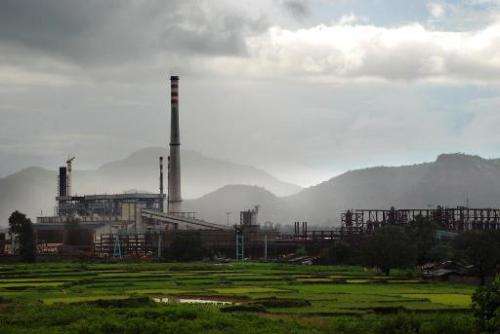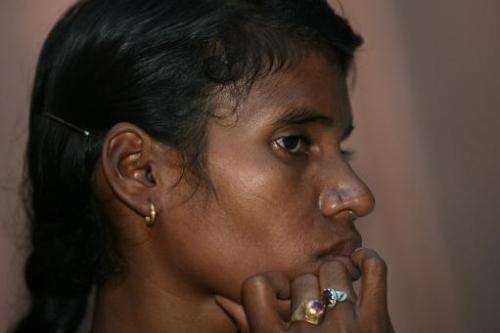Victory for 'Avatar' tribe as India rejects miner's plans

An Indian tribe dubbed the "real-life Avatar" after the Hollywood blockbuster have won their decade-long fight to stop British resources giant Vedanta from mining bauxite in hills they regard as sacred, authorities said Saturday.
The Indian environment ministry rejected Vedanta's plans for a multi-billion dollar bauxite mining project in the eastern state of Orissa after villagers voted overwhelmingly against the project.
Bhakta Charan Das, a local member of parliament who belongs to the national ruling Congress party, welcomed the decision.
"It is a victory for the Dongria Kondh tribals who made history by stopping mining at their place of worship," Das said.
But an Orissa state minister called the rejection of the proposal to mine bauxite in the mineral-rich Niyamgiri hills "unfortunate" and accused the national government "of doing politics at the cost of development".
Orissa Steel and Mines minister R.K. Singh told the Press Trust of India (PTI) that steps would be taken to provide an alternative source of bauxite for London-listed Vedanta's one-million-tonne-a-year aluminium refinery.
The environment ministry's decision caps a decade-long battle against the proposed mine by the Dongria Kondh tribe.
The 8,000-strong group has fiercely resisted attempts to mine the green hills of Niyamgiri on which they have relied for their crops and livelihood, and believe the hills are home to their deity Niyam Raja.
Their opposition received wide international support after parallels were drawn between the tribe's cause and the Hollywood science-fiction movie Avatar.
India's Supreme Court ruled last April that locals should vote on the plan to extract bauxite from the hills. The proposal was rejected by all 12 village councils in the area.

The voting by the villagers marked the first time an environmental referendum had been conducted on the orders of the Supreme Court, the PTI news agency said.
Vedanta had been anxious to begin mining in order to feed the nearby Lanjigarh aluminium refinery which has had to curtail production due to shortage of bauxite.
The company could not immediately be reached for comment on the ministry's decision.
The project is a joint venture between Sterlite Industries, a unit of Vedanta, and the Orissa Mining Corp, a state government enterprise.
All the villages "have unanimously decided not to allow any mining activity on the Niyama Dangars", said the environment ministry's rejection order.
The final decision on the project was taken on January 8 by recently appointed federal environment minister M. Veerappa Moily, local media reported.
The Orissa minister told the PTI that Vedanta could be given prospecting licenses on small deposits of bauxite in Kalahandi and Rayagada districts.
He said the company could also extract bauxite from laterite ore available in the state.

But it was unclear whether that would be sufficient to feed the refinery.
Defenders of the mining project say they want to create jobs in an impoverished region and bring tribal people into the economic mainstream.
Opponents had said the mine would destroy the forests and disrupt the rivers in the Niyamgiri Hills, which they believe are central to the livelihood and identity of the tribes.
Vast tracts of mineral wealth in India lie in tribal areas but indigenous people complain that they rarely reap any benefit.
The row has underscored the challenge India faces in bringing industrial development to the country while respecting local concerns.
"This is a very welcome decision by the environment ministry and obviously a victory of people's voices after a decade of struggle," Bratindi Jena, a campaigner for international humanitarian group Action Aid, told AFP.
"Now maybe it is time for Vedanta to pack up and go in a dignified way," she added.
© 2014 AFP


















